Ever so often, I delve into games I only played once or twice and try to understand why I left it at once or twice. Sometimes it’s simple: clunky controls, game bugs, repetitive gameplay, a puzzle I couldn’t solve and didn’t have Gamefaqs for at the time.
Other times it’s something a bit more interesting: the game design, the characters and more often than not, the story.
Assassin’s Creed: Rogue falls into those latter categories, and at the time, for reasons I couldn’t comprehend. It’s not a bad game; not my favorite, perhaps, but it had good combat and interesting and varied level designs. Rogue borrows and builds from various other titles, including the famous naval exploration and combat introduced in Black Flag. Overall, it’s not a terrible experience to play through.
And then we get to the characters. Specifically, our protagonist.
Who is this guy?
The game’s protagonist is Shay Cormac, a broody fellow who, after a lot of misunderstanding and heap of guilt, becomes our titular rogue, turning against his Assassin brethren. And here, I found, is where things go south for me.
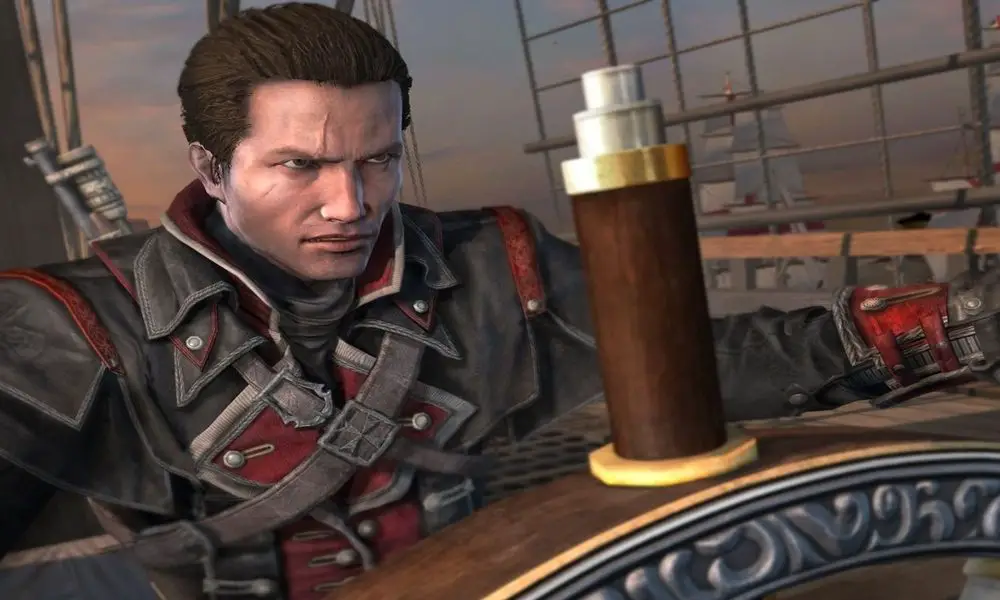
The Assassin’s Creed series, even barring the more recent RPtrilogy, has definitely…simplified, in recent years. However, while the once heavily philosophical debates about violence, mortality, and power have largely been replaced with far more cartoonish, black and white morality…in some cases, we can argue that from a lore perspective, it mirrors the society being presented in-game.
The Templars, despite over the top schemes and grandiose speeches about law and order, have been largely held to the age old idiom: absolute power corrupts absolutely. The very nature of their philosophy is at constant odds with reality: in order to subvert chaotic freewill, someone must have the freewill to do so.
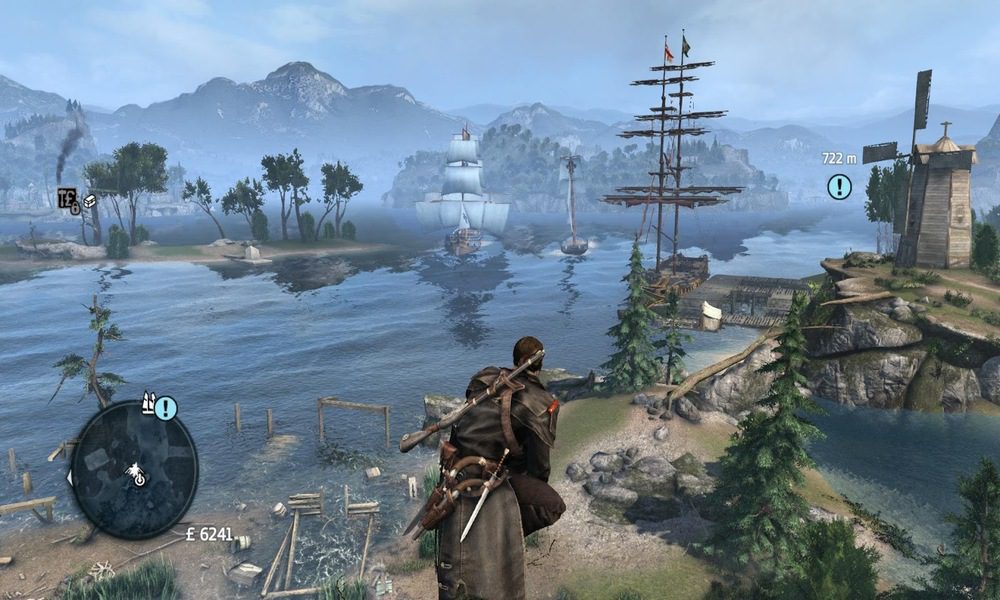
As such, much of the ideals the Templar hold onto become quite familiar to us on an historical level: that only a select few should be considered to guide humanity “for their own good”. It’s the tone scientific and ethical racism has taken on over the centuries; “those” people are subhuman, so someone must take the reins of their autonomy.
It’s a mindset that is undeniably evil, in both its intentions and insidious nature, and part of the reason the Templars have undeniably been the villains for much of the series. Ergo, it doesn’t make much sense, in the beginning, for Shay to join them.
Much of Rogue‘s campaigning revolved around the idea that the player would step into the shoes of a character that worked outside the realm of Assassin and Templar, a sort of friend-to-none that operated in shades of grey, a loner guided only by his personal code of honor and morality.
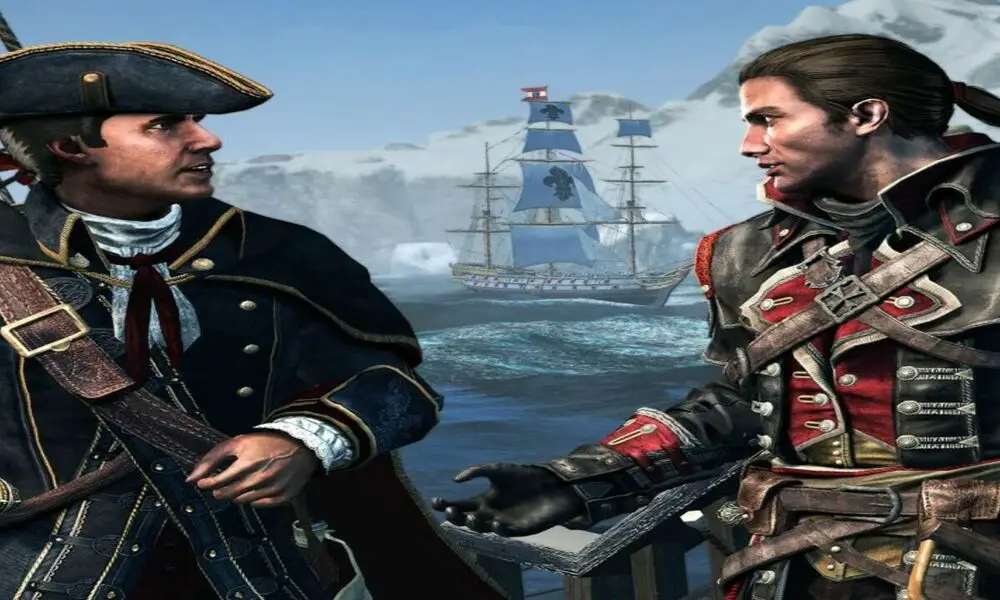
But instead of a Rogue, we just got a Traitor.
The Road to Heck…
Shay’s intentions start out good. When a mission to retrieve one of the mystical Pieces of Eden goes awry and triggers a catastrophic event that kills thousands, a traumatized Shay returns to a Brotherhood frustrated with his failure. This is the final nail in the coffin that is Shay’s faith, and he decides that the Brotherhood is too irresponsible to get their hands on other artifacts of similar destructive power.
Understandably, the Brotherhood isn’t too happy with Shay deciding to make off with their WMD roadmap and a fierce chase ends with Shay shot and hurtling off a cliff.
Let me make a brief detour. One of the things to remember about hate groups is that they are normally quite different on a day to day basis than how they’re presented in modern media. The average white supremacist or neo-nazi isn’t sacrificing people in their basement or conducting elaborate rituals covered in face paint or walking about in military grade armor and LMGs.
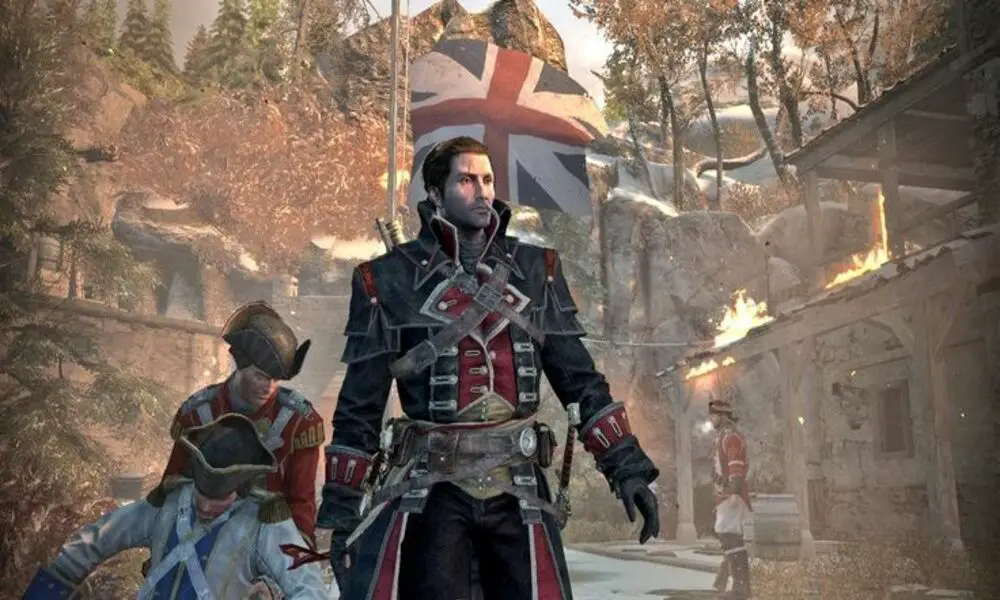
These people are still people. They have family dinners and attend the PTA and ride the bus and yes, play video games. One of the greatest weapons a proprietor of hate can wield is their own mundanity.
This is what we see occur in Rogue. Shay wakes, having been nursed back to health by a random, kind-hearted family. And within moments of waking, Shay decides to pay them back by playing hero and dispelling the gang members banging on their door.
Of course, the family doesn’t deserve to be extorted or harassed. No one does. It makes matters complicated however, given that they are associates of the Templars and their harassers that of the Brotherhood.
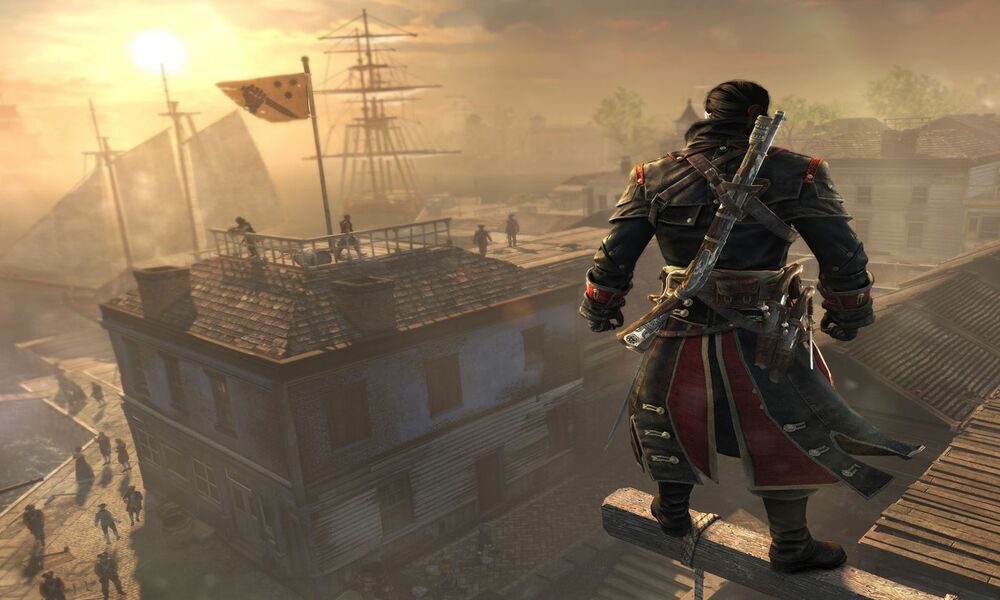
Shay of course dispatches the group, ironically utilizing the same skills that the Brotherhood imparted upon him, and shortly after begins to get more and more involved with Templar operations. He’s brought further into the fold by series familiar Haytham Kenway, dismantling the operations of his former allies and even fighting a war, propelling him to a position within the Templars inner circle.
…Lands you in a Supremacism Group
Here’s where the game began to shift for me, both then and now. Years ago I didn’t have quite the ability to put my finger on what was bothering me, and it’s only after a fair bit of contemplation that I’m able to figure it out now:
Shay Cormac’s philosophy makes no sense.
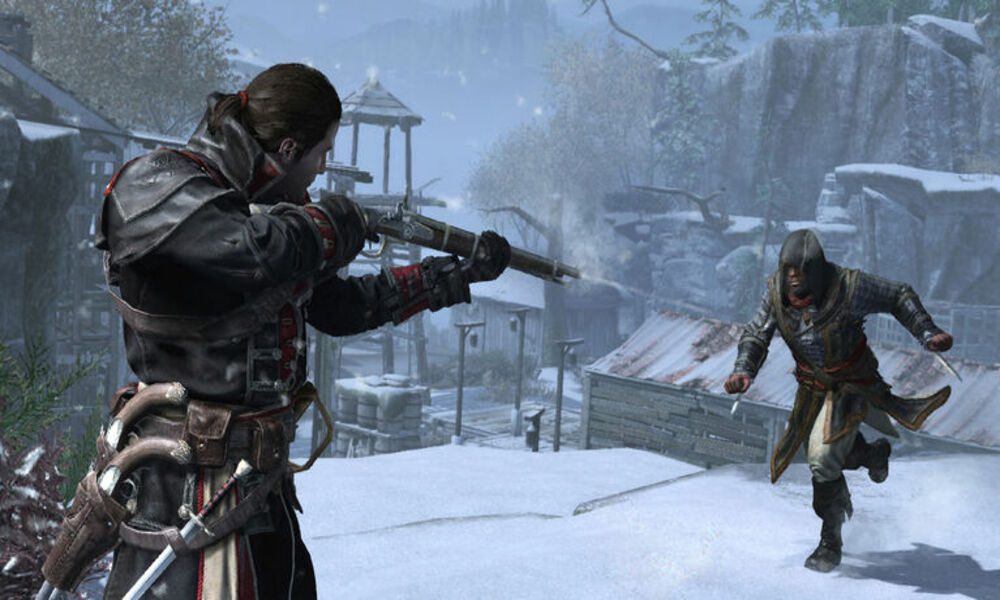
Or perhaps, that is to say, the narrative presented to us makes no sense. I mentioned earlier that ads for the game present Cormac as a character with depth and nuance, someone who straddles the lines. A Jason Todd of the Brotherhood, as it were.
The mindset of the Cormac we’re presented with in the game is idiotic because we have someone who willingly jumps from one toxic community (for him) to another (for everyone save a select few). The original reason for his defection—that the Brotherhood has failed their philosophy and not “stray[ed] their blades from the innocent” so to speak—is completely undermined by his joining an organization that not only has a history of endangering and exploiting the lives of innocents, but actively seeks out the mystical ancient tools that started the mess to begin with. The entire sordid affair is completely illogical.
That is, if we’re looking at the story in a certain way. Specifically, the way we expected it to be—young man sees fatal flaws with organization, adjusts accordingly.
If we instead look at the game, not as a story of induction, but of indoctrination…the narrative changes.
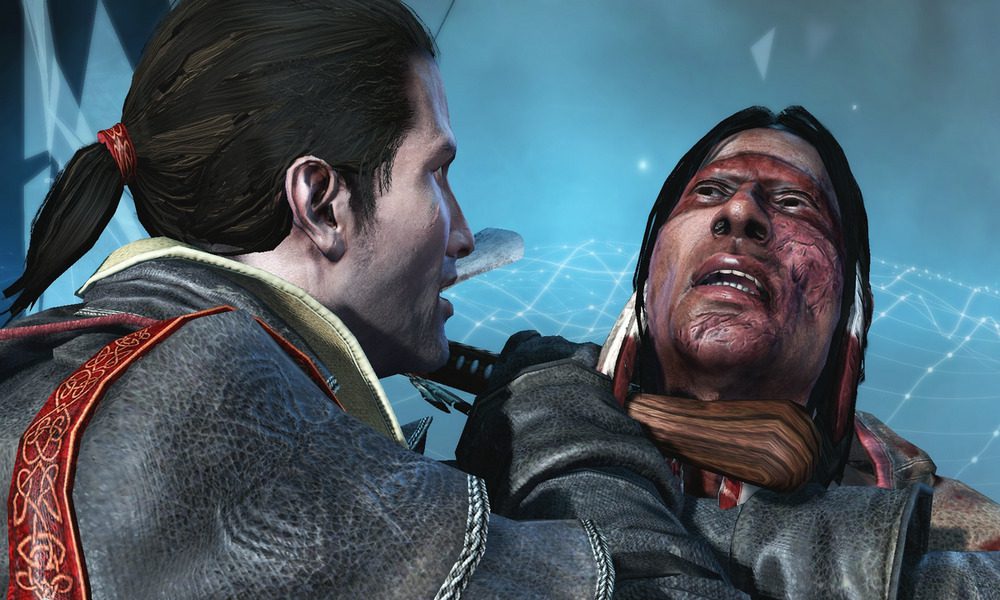
We’re told, through various character interactions and codex entries, that even before his defection Cormac is regarded as standoffish and belligerent. So much so that it impedes his ability to advance through the Brotherhood ranks despite his talent, much to his own frustration. What this tells us is that much of his own lack of faith is compounded by the Brotherhood’s understandable hesitance stemming from his lack of cohesion in what is supposed to be a closely connected sect.
Furthermore, it casts an extra shade upon Cormac’s subconscious motivations. While there is no question that the Colonial Brotherhood is flawed, it does alter our understanding regarding his motives and remarkably easy willingness to throw his lot in with a, misunderstood or no, historically oppressive, greedy, totalitarian organization. That perception leads us to realize that the Templars, more so than the Brotherhood, is offering Cormac a sense of validation.
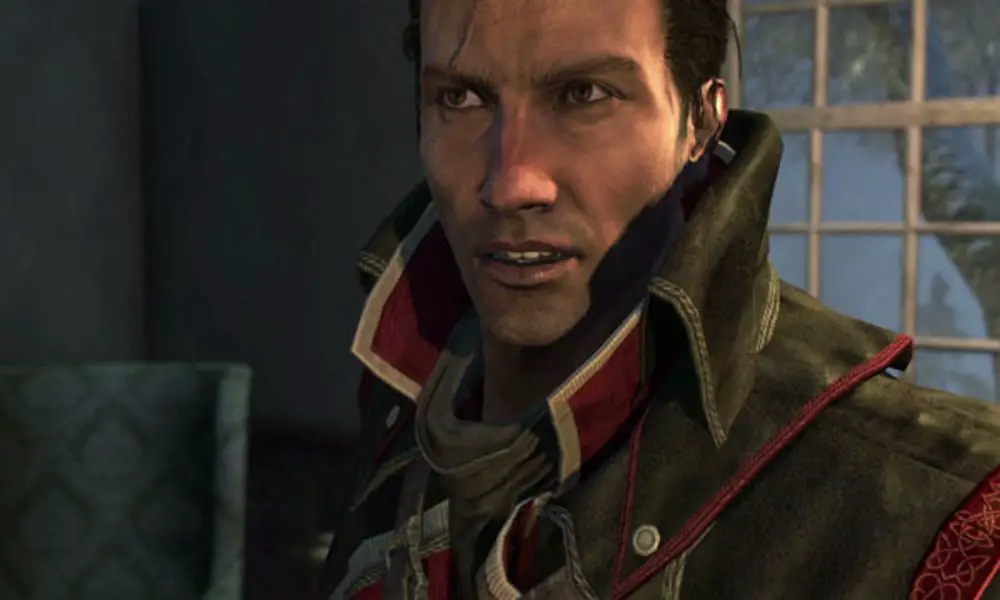
Beyond innocent mundanity, hate groups utilize a cultivation of ego to sell their numbers. Rather than encouraged to examine themselves and their motives and biases, a member is instead given justification regarding their frustrations. Their problems are not due to their actions—their problems have specific causes and specific names and specific faces against which their frustration, once solidified and aimed, is warranted.
The Brotherhood, as seen through Cormac’s “enlightened” eyes, is not simply a flawed entity, but one that is naive and dangerous. To Cormac’s perspective, the Templars are not only the mature and reasonable choice, but one that has a responsibility to put down his former comrades for their own good. Cormac isn’t simply set on destroying the Assassins out of vengeance—he’s set on destroying them because he finally has a reason to believe he’s right to do so.
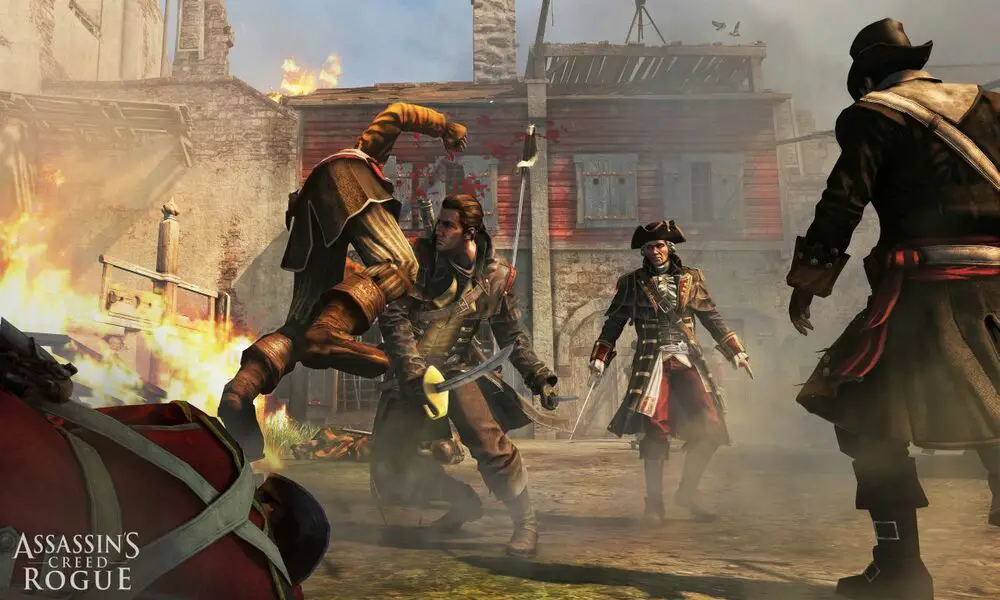
Legacies of Hate…and Hope
Furthermore, we can draw a final line between Cormac’s indoctrination and real world discrimination and hate tactics: legacy.
We discover, reading through various codex entries, that Cormac’s connection to the Templars became so great, he bought into their fervor so much, that he raised his children into the mindset. He creates a generation of Templar loyalists. This is the legacy of subjugation we get to see and combat in Assassin’s Creed: III. A legacy of slavery, murder, betrayal and theft. In this series in which all of history is connected, it becomes abundantly clear that Cormac near-single-handedly paves the way for countless years of heartache for millions of innocents, the very people he claimed to want to protect when he first embarked down the Templar’s path.
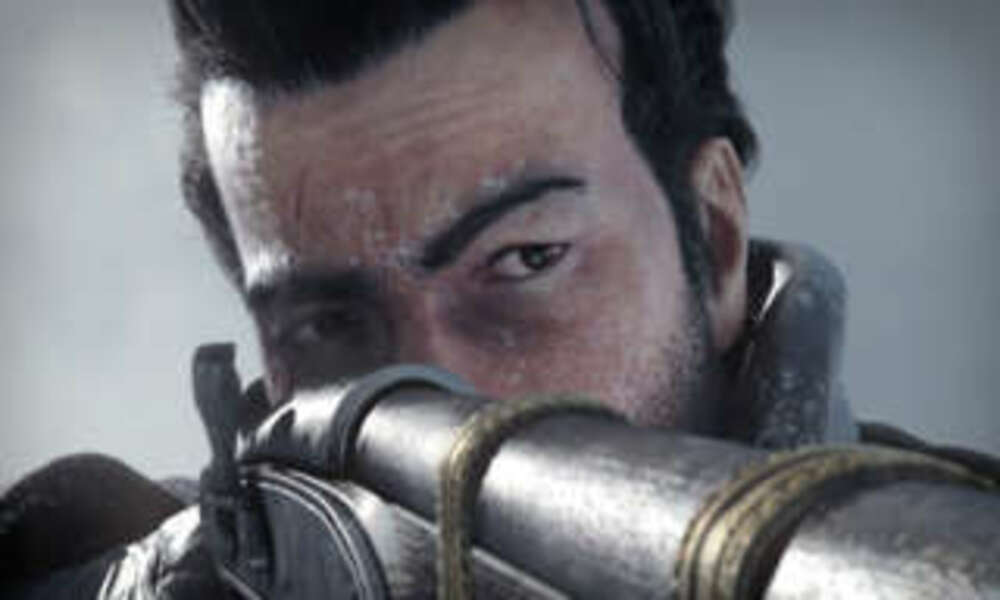
Now obviously this is fiction. One man can not and did not facilitate the domino effect that resulted in centuries of oppression and generational trauma. But in a time in which the boldness of every type of insert-here-phobe has reached a height and level unseen in years, it’s worth examining a piece of media that inadvertently presents an approximation of the step-by-step process by which these types of people become…well, these type of people.
Shay Cormac is presented to the audience, the player, and even himself as the hero. As is every supremacist in reality. They are the heroes, the warriors, the knights in shining armor of the desperately structured reality they immerse themselves in. And just like in the real world, Cormac’s actions don’t end up saving the many; he only manages to delude himself by saving the few he deems worthy.
It’s interesting to note, I think, one last notion. Like him or hate him, sympathize with or pity him, Cormac’s actions do end up developing and cultivating one last, final, inadvertent piece to the puzzle.
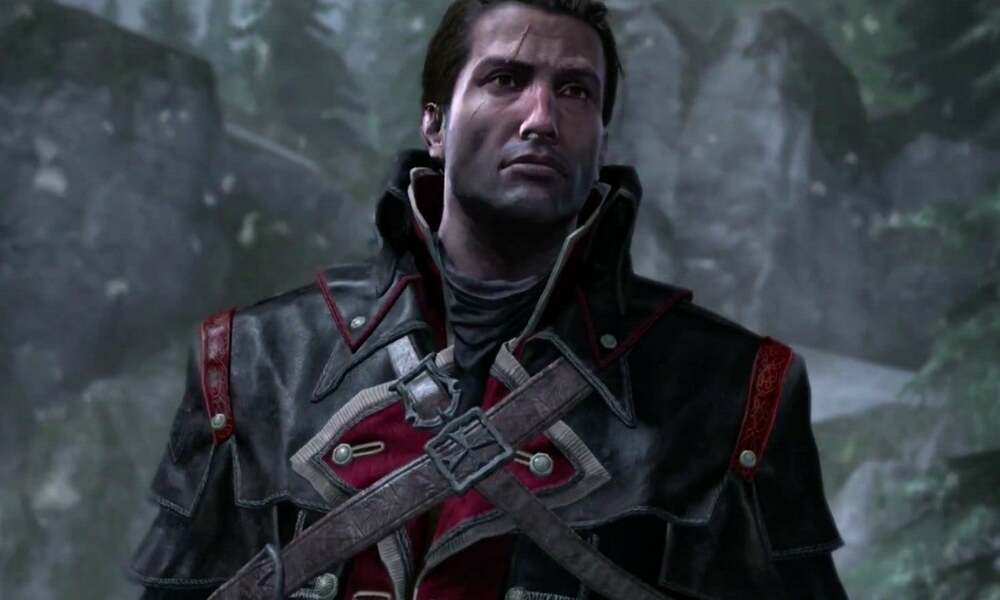
Hope.
Through Cormac, the Templars become powerful. Through this power, they become overt. Through this overt strutting, they become arrogant. And it is through this careless, albeit genuine, arrogance, that aforementioned Master of the Order, Haythem Kenway conceives the Colonial Order’s downfall: his son, Ratonhnhaké:ton, better known as Connor Kenway, eventual Master Assassin.
As cliché as it may sound, even this singular character, this single game, presents a perspective easily forgotten in a world of chaos: darkness doesn’t last forever. Hope is eternal, always sitting at the bottom of the box. Sometimes we grab it. Sometimes it comes to us. But it always arrives in the end.
Images Courtesy of Ubisoft
Have strong thoughts about this piece you need to share? Or maybe there’s something else on your mind you’re wanting to talk about with fellow Fandomentals? Head on over to our Community server to join in the conversation!

